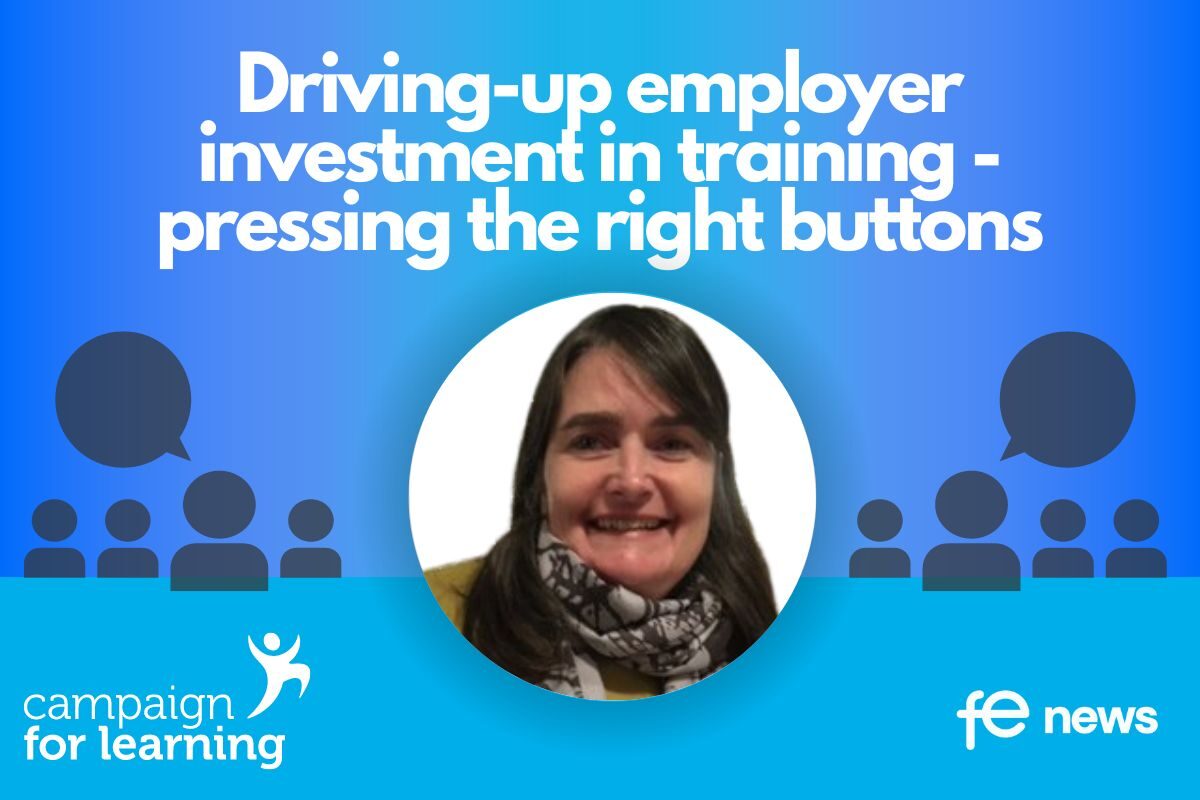Local inward investment, business support and employer demand for training

The 38 Local Enterprise Partnerships (LEPs) are business led partnerships between the private, public and third sector. They play a central role in determining the economic priorities for their region and driving economic growth, improving infrastructure, creating jobs and developing workforce skills.
The role of LEPs in local inward investment
LEPs work with their local stakeholders to encourage inward investment into key development areas, such as Enterprise Zones, highlighting opportunities and embedding prospective businesses with the local networks related to skills and employment. Gone are the days where there is a ready supply of potential employees. Instead, new (and existing) businesses need to engage with education providers and embrace employability initiatives being delivered locally and nationally in order to get the required talent.
LEPs have a unique role to play in bringing these partners together, understanding that landing a business in a given location is not the defining objective for effective inward investment, more the benefit that specific inward investment project brings to the area and how that investment adds more value to the local economy.
In Norfolk and Suffolk, the two County Councils and New Anglia LEP have pooled resources to create a joint Inward Investment Service called ‘Invest Norfolk & Suffolk’. 185 enquiries have been made through this service with some key leads for manufacturing and warehouse skills requirements.
In the South East LEP area, major projects have been brought together as a Skills Group, linking with their Skills Advisory Panel (SAP). Projects include the Lower Thames Crossing, Ebbsfleet Garden City, Freeports and Bradwell B.
The role of LEPs in business support
The role of LEP Growth Hubs is to provide practical support and guidance to local businesses, working with public and private sector partners such as the Chambers of Commerce, FSB, universities, Enterprise Zones and banks. They successfully delivered additional resources during the Covid-19 pandemic as they are a trusted mechanisms for immediate connectivity to employers.
They also act as enablers to support such as grants and loans. By providing business leads with evidence of progression and increases in productivity gained in one joined-up conversation, they are more likely to consider the holistic approach rather than to rely on material investments alone.
How these local strategies drive-up employer demand for training
LEPs have consistently delivered on skills activity since their inception. All have published evidence driven Economic Strategies and detailed Local Skills Reports which showcase the work overseen by their Skills Advisory Panels (SAPs). These reports use credible data, together with local intelligence, to present detailed analysis of the challenges and opportunities within a particular geography.
This local labour market intelligence underpins local skills and employment strategies, and sets out priorities for fundings sources and curriculum development. Recent examples include Skills Bootcamps and Multiply, plus the remaining ESF. They will also help shape Shared Prosperity Funds.
Several LEPs have developed Workforce Development Advisor roles who build up relationships with employers and provide advice and support on how to attract, increase and sustain their workforces and talent pipelines. These hybrid roles, sitting between the Growth Hubs and the Skills Teams, are also successful in maximising the sharing of Apprenticeship Levy.
The Hull and East Yorkshire (HEY) LEP Talent Forum informs providers and investors on developing suitable training courses. Many LEPs run specific sector skills groups.
Regional employer engagement within provider settings and at stakeholder level is essential. Emerging growth sectors, which LEPs are acutely aware of, will share the workforce needs regionally and at employer level. If local talent is unavailable, employers need to be encouraged to be part of its development. However, resources are required – money, time, curriculum and tutors.
Younger residents are often not aware of career routes so the LEPs Careers Hubs play a valuable role. The Chancellor recently highlighted the issue of inactivity among the 50+ age cohort, many LEPs supported the DWP with a 50+ Choices pilot in 2021 to encourage employers to review their HR practices with this age cohort.
As the country faces some of its biggest economic challenges for decades, the role of LEPs in ensuring that businesses engage with LEP led skills and employability programmes has never been more valuable to local economic growth, and the Government should utilise this asset and make use of the invaluable economic evidence and sector links that LEPs are wired into.
Linking LEPs to employer representative bodies and LSIPs
The DfE local skills improvement plan developments, whilst welcomed in terms of regional investment, have completely overlooked the knowledge, experience and impartiality of LEPs work to date. Their focus on technical training limits their reach.
The Employer Representative Bodies assigned (typically Chambers of Commerce and FSB) have not traditionally had a comprehensive skills remit. LEPs are strongly contributing to the LSIP process. Timescales are also unrealistic to carry out comprehensive business engagement.
Without the expertise and relationships built up over a significant time period, it is possible that in some areas the LSIPs will not reach their potential, and this is something that cannot happen. LEPs are willing and able to play their part and welcome the opportunity to do so if funding allows.
Recommendation 1
The Government needs to recognise the invaluable economic evidence and sector links that LEPs have and there should be continued financial support for Growth Hubs at a time of economic need.
Recommendation 2
Inward investment businesses should seek out more opportunities to engage with skills and employability programmes.
Recommendation 3
The recently formed Department for Business and Trade and the Department for Education must work together to formally acknowledge the work that LEPs do with skills and employment and formally link it to that of the Employer Representative Bodies leading on LSIPs.
By Natasha Waller, Policy Manager, LEP Network
This article is part of Campaign for Learning’s series: ‘Driving-up employer investment in training – pressing the right buttons’.
Part One: Employer investment in context
- Louise Murphy, Economist, Resolution Foundation: Investment in the round
- Dr Vicki Belt, Deputy Director, Enterprise Research Centre, Warwick Business School: UK enterprises and investment in capital and training
- Becci Newton, Director, Public Policy Research, Institute of Employment Studies: Employer investment in training in England
Part Two: Drivers of employer investment in training
- Neil Carberry, Chief Executive, Recruitment and Employment Confederation: Derived demand, British management and employer investment in training
- Ewart Keep, Professor Emeritus, Education Department, University of Oxford: Strategies to drive-up employer investment in training
- Sam Alvis, Head of Economy, Green Alliance: Transitioning to net zero, green skills and employer investment in training
- Dan Lucy, Director of HR, Institute of Employment Studies: Job quality, job design and driving-up employer investment in training
- Natasha Waller, Policy Manager, LEP Network: Local inward investment, business support and employer demand for training
- Jovan Luzajic, Acting Assistant Director of Policy, Universities UK: Universities, R&D, business innovation and meeting employer skills needs
- David Hughes, Chief Executive, Association of Colleges: FE colleges, business innovation and meeting employer skills needs
Part Three: Increasing employer investment in training
- Paul Bivand, Labour Market Consultant: Why should employers invest in training in a flexible labour market?
- Aidan Relf, Skills Consultant: Why should employers invest in training with large net worker migration into the UK?
- Stephen Evans, Chief Executive, Learning and Work Institute: Raising employer investment in training
- Robert West, Head of Education and Skills, CBI: Increasing employer investment in training
- Lizzie Crowley, Skills Policy Adviser, CIPD: Encouraging employer demand for training
- Anthony Painter, Director and Daisy Hooper, Head of Policy and Innovation Chartered Management Institute: Increasing employer demand for management training
Part Four: Raising employer demand for publicly funded post-16 education and skills
- Jane Hickie, Chief Executive, AELP: Increasing employer demand for post-16 apprenticeships in England
- Mandy Crawford-Lee, Chief Executive, UVAC: Increasing employer demand for level 4-5 technical education in England
- Ian Pryce, Principal, The Bedford College Group: Increasing employer demand for higher technical education in England
Part Five: Raising employer demand for work placements
- John Widdowson, Board Member, NCG: Increasing employer demand for work placements for level 3-5 vocational courses in England
- Stephen Isherwood, Joint Chief Executive, Institute of Student Employers: Increasing employer demand for undergraduate work placements in England











Responses